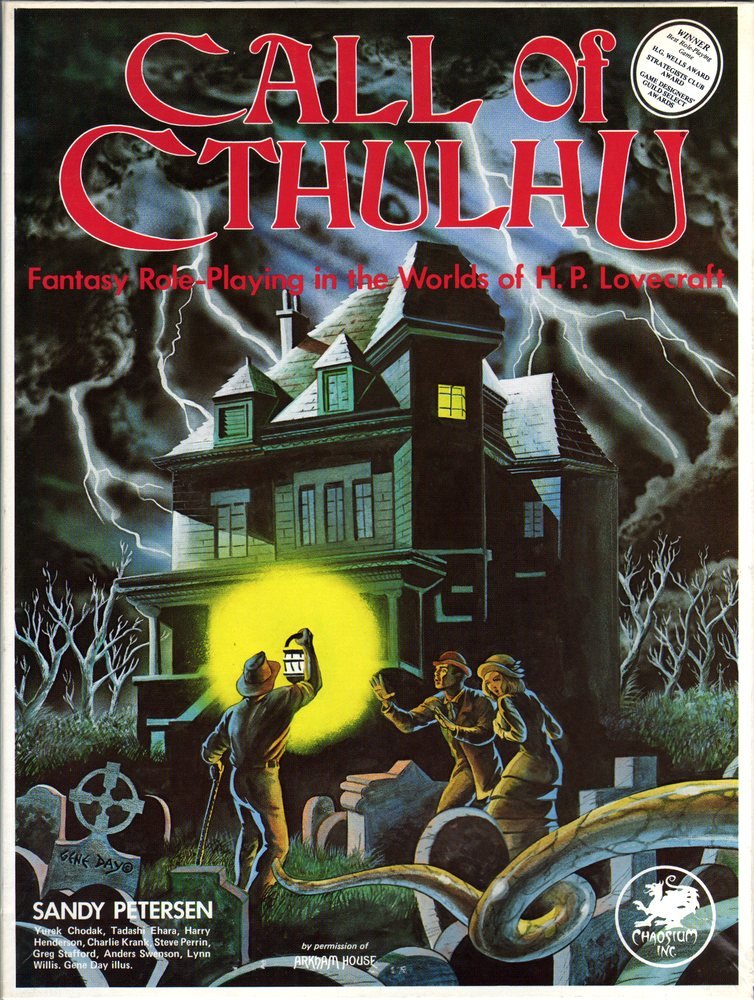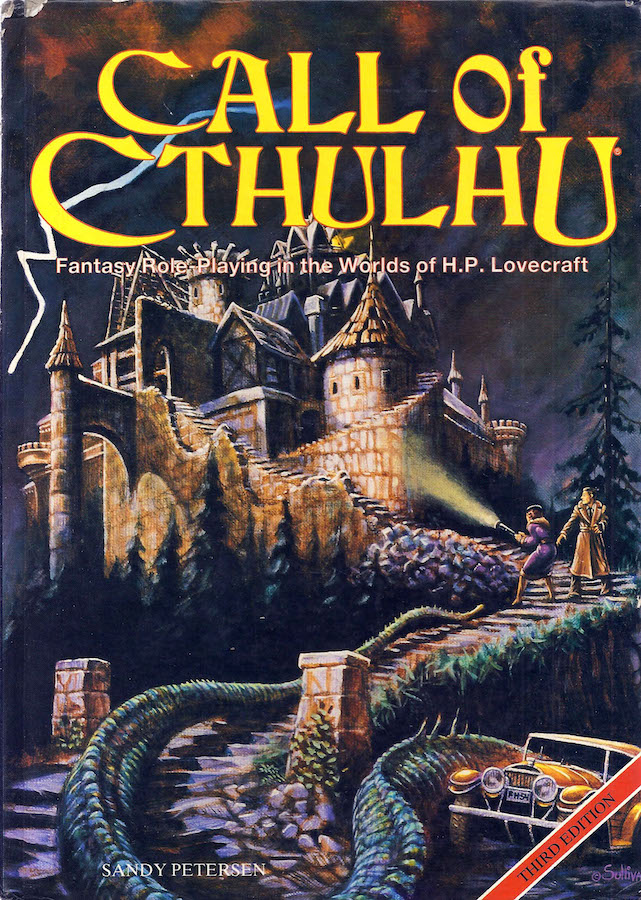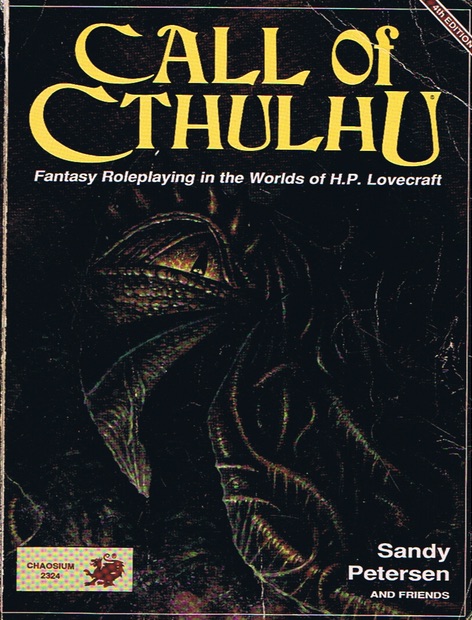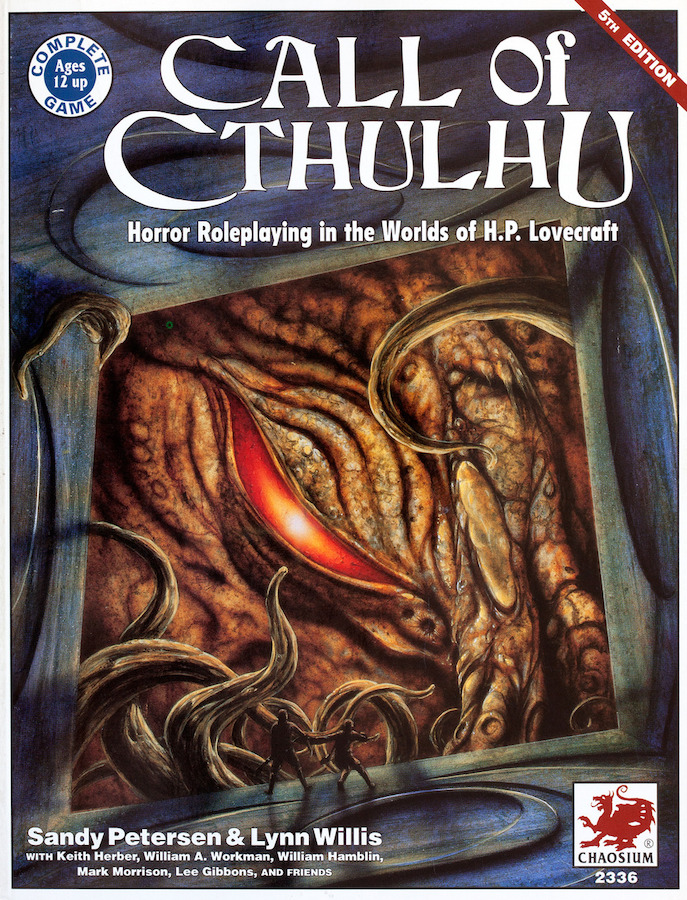With Strange Aeons – How The Call Of Cthulhu Changed The Face Of Roleplaying Games – PRIME
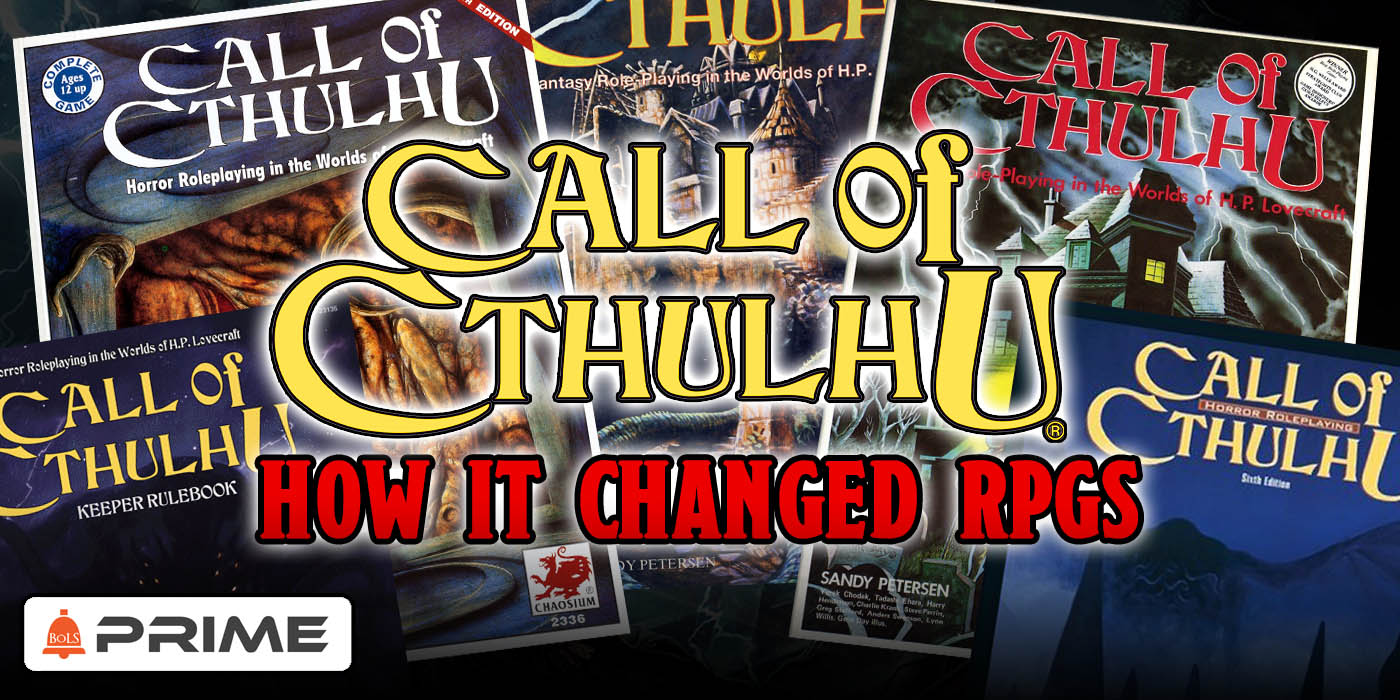
Your favorite adventures and livestreams owe more to Sandy Petersen’s Call of Cthulhu than Gary Gygax’ Dungeons & Dragons. Here’s why.
Dungeons and Dragons might have invented roleplaying games, and created an entire industry, but modern roleplaying has more in common with Call of Cthulhu than with the first editions of D&D.
If you’ve ever played a modern RPG adventure like Icewind Dale: Rime of the Frostmaiden, or had one of those sprawling campaigns with beautiful visual handouts, or been all over the world on globetrotting (but interconnected) adventures, you’re feeling the influence of Sandy Petersen and the Call of Cthulhu. It’s hard to overstate just how influential this adventure has been. It’s a lot like Casablanca, because many of the things that we take for granted now, Call of Cthulhu did first.
One of the most basic shifts that Cthulhu brought about was a shift in the role-playing landscape. Until 1981, RPGs were broad, but even early editions of more narrative games like Glorantha were more interested in how you fought than in investigation and interaction. Call of Cthulhu changed that, framing the game instead on the classic tropes of Lovecraft’s stories–exploring the unknown and learning truths you wish you hadn’t.
After all, you can’t have a fear of the unknown without having something there to not know about in the first place… you have to understand just enough to draw you further. Petersen decided to make investigation and introspection central to the game’s mechanics. As he describes it in an interview with io9:
Most games up till then were combat-centric. Adventures centered on fighting. In the horror genre, the weakest conceivable monster is probably a cultist, who is, by definition, just as tough as an investigator (since they’re both humans). Something like a werewolf or ghost is fierce enough that a whole novel or movie can be plotted around just one.
It was obvious that Call of Cthulhu needed a different focus beyond combat, so I zeroed in on investigation, which also fit Lovecraft’s characters and stories. I basically substituted investigation and research and uncovering of secrets for the combat.
Advertisement
Call of Cthulhu adapted parent company Chaosium’s Basic Roleplaying System, with the goal of helping players “move past the rules, and into the activities” which, if you’ve read any of 5th Edition’s ethos, should sound incredibly familiar.
It’s a game that wants players to be able to have an easy time playing it. That wants to blend seamlessly into the background so that you stop noticing so much when you’re playing a game. Call of Cthulhu is sort of the exemplar of those sessions that everyone talks about with glowing praise that all inevitably end with “…and we didn’t even touch dice once!”
It was a game all about getting into character. As the first edition puts it:
Players in Call of Cthulhu take the part of intrepid investigators of the unknown, attempting to ferret out, understand, and eventually destroy the horrors, mysteries, and secrets of the Cthulhu mythos. A game moderator, known as the Keeper of Arcvane Lore is necessary for this game, and his role is to attempt (within the rules of the game) to set up situations for the players to confront.
AdvertisementThe players … have a duty to play their investigators within the known limits of the characters they run. Remaining unbiased is as difficult for the players as for the referee. Just because a player is a science major and knows how to concoct subtle and potent compounds does not mean that his 1922 New York street cop character (without learning or training) could stroll to Yonkers and set up a pharmacy.
And by and large the game puts you on track to do exactly that. You can create your character around a fairly free-form concept, because characters in this system are by and large, a lot more streamlined than other counterparts. You have characteristics and skill rolls and that’s about it.
Chaosium does theme and narrative better than pretty much anyone else. They tie the feeling of the game to the mechanics, so you can’t help but be transported. So while you’re playing a cop or a professor, the system is pointed, every way it can, into making you feel like you’re just a cop or a librarian who learned the wrong thing.
A big part of this is that in the game, clues are designed to draw both player and characters further and further from what they know.
This style of revelation, called the “onion skin” system is meant to convey the investigator’s descent into the world of the mythos. Every layer of reality they know is peeled away. Clues lead not onward, but inward:
The first campaign for Call of Cthulhu, it paved the way for many classics to come and it introduced the concept of the onionskin campaign. This has the investigators stripping away layers of information like the skin of an onion as the players progress through the campaign, revealing more of the evil cult’s plans and coming closer to the heart of the adventure.
Advertisement
It appeals not just to characters, but to what the actual players put into the game as they pursue cultists across the globe. Whatever the case, modern gaming wouldn’t look remotely like what it does today without Petersen and Cthulhu. It was the game that finally got RPGs to leave behind their Wargame roots and step fully into a new genre of game
Happy Adventuring!

